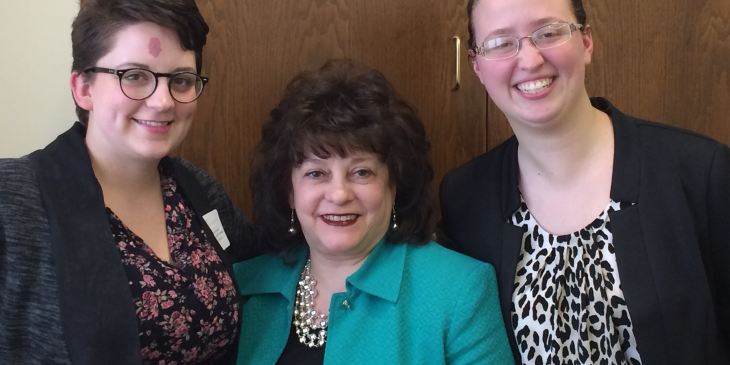When Dr. Linda Rose Frank thinks about the HIV epidemic, the virus that causes AIDS isn’t the only disease on her mind.
Not by a long shot.
“It’s impossible to only talk about HIV—you cannot separate it from hepatitis C, substance use disorders and the myriad other diseases transmitted by sexual contact or intravenous drug use,” said Frank, professor in the University of Pittsburgh Graduate School of Public Health Department of Infectious Diseases and Microbiology. “It is so critical that all clinicians are aware that if their patient has one of these diseases or engages in risk behaviors that increase the chance of acquiring them, they, along with other members of the treatment team, need to be on the lookout for all of these diseases.”
Frank is the principal investigator of the MidAtlantic AIDS Education & Training Center (MAAETC), which has served the MidAtlantic region since 1988 and recently was awarded $14.2 million from the Department of Health and Human Services’ Health Resources and Services Administration, Bureau of HIV/AIDS to continue the center’s work for the next five years.
It is one of eight regional centers nationwide and covers Pennsylvania, West Virginia, the District of Columbia, Maryland, Virginia and Delaware, with a consortium of universities and clinical partners in those states working together to educate primary care and HIV care teams within hospital, clinic and community settings to provide coordinated care to improve health outcomes for persons with HIV and those at risk.
“The MidAtlantic is part of Appalachia, which has been hit hard by poverty and a lack of resources, jobs and health care services,” Frank said. “It makes our emphasis on increasing knowledge and skills in rural clinics across our region particularly important and a major continued focus of our work going forward.”
The MAAETC helps to build capacity within health care facilities and clinics to improve service delivery, quality in the provision of HIV prevention, treatment and care. It also guides providers in approaches to collaboration with other agencies and accessing additional funding and resources to expand and enhance services in both urban and rural areas so they can best provide care to their communities.
An important part of the center is training the next generation of people who work in HIV prevention and treatment. The center embodies this by employing public health graduate students and encouraging them to apply for job openings after graduation.
“It’s been a great fit for my interests and strengths,” said Marilyn Blasingame, M.P.H., a former Pitt Public Health student who has worked with the center for the past three years, currently as an HIV educator and training coordinator. “Affecting the ability of health professionals to provide the highest standards of care to their communities is crucial to ending the HIV epidemic.”
Ingrid Godfrey, M.P.H., took a full-time position with the center earlier this year as a distance learning specialist. “The easiest way nowadays to disseminate information is through technology,” Godfrey said. “Because the MidAtlantic has a particular need in the rural areas, we’ve found that telecommunication can provide a huge benefit to rural health clinics and create training opportunities that wouldn’t otherwise exist.”
Frank stressed that, in addition to improving care capacity in rural areas, the center also is focused on increasing access to HIV testing and prevention.
“We have the tools now to end this epidemic,” she said. “We still must work every single day to reduce the continued stigma associated with HIV, substance use, mental illness and sexually transmitted infections.”
The MAAETC also encourages the discussion of stigma as a barrier—a major obstacle to ending the epidemic—for persons accessing prevention and treatment.
“Just as everyone knows their blood pressure reading or their cholesterol level, they should know their HIV status,” Frank said. “This is the first step in reducing stigma and normalizing HIV testing. This is essential so that those who are HIV positive can be immediately linked to care and started on medication. This is life-saving for the person infected and has been shown to prevent further HIV transmission to others when the person with HIV is on antiretroviral medication. The training and education of health care professionals of all disciplines is important to end the epidemic and the MAAETC is critical to doing this in the MidAtlantic region.”








